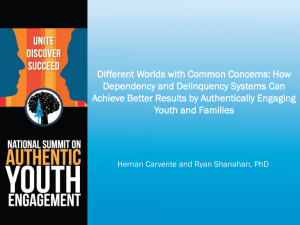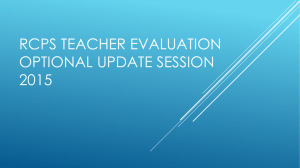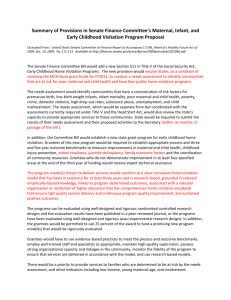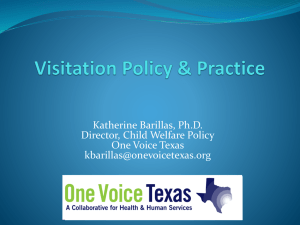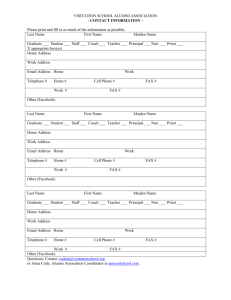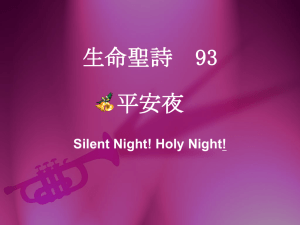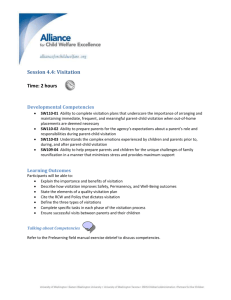12-23-2012 Advent 4c 2012
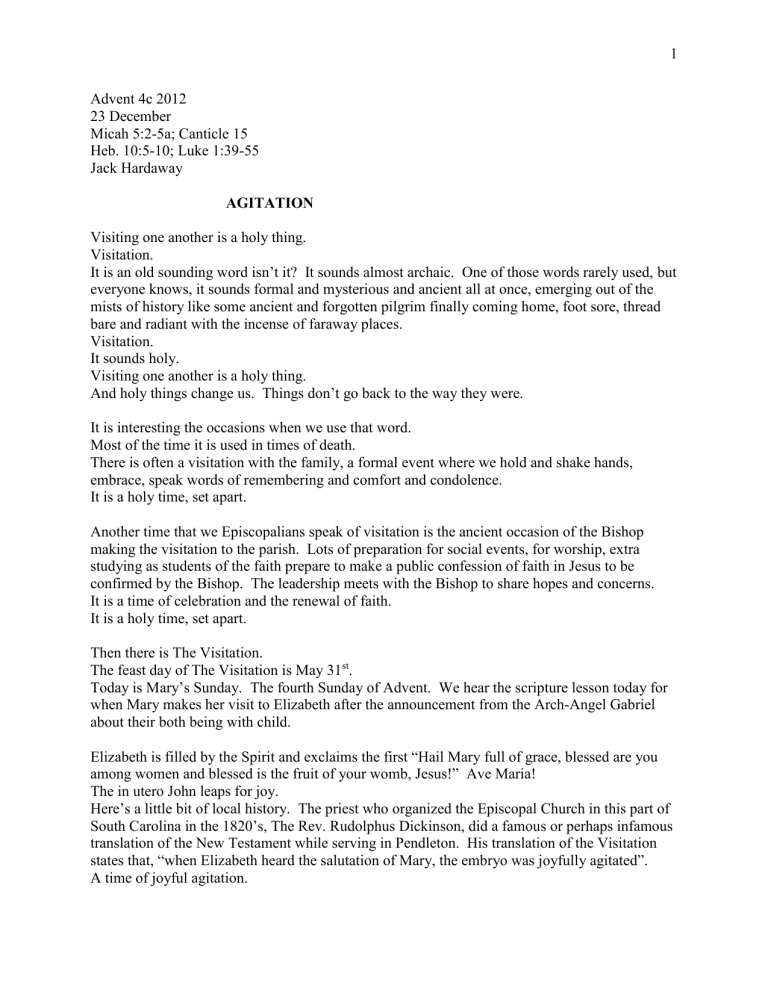
1
Advent 4c 2012
23 December
Micah 5:2-5a; Canticle 15
Heb. 10:5-10; Luke 1:39-55
Jack Hardaway
AGITATION
Visiting one another is a holy thing.
Visitation.
It is an old sounding word isn’t it? It sounds almost archaic. One of those words rarely used, but everyone knows, it sounds formal and mysterious and ancient all at once, emerging out of the mists of history like some ancient and forgotten pilgrim finally coming home, foot sore, thread bare and radiant with the incense of faraway places.
Visitation.
It sounds holy.
Visiting one another is a holy thing.
And holy things change us. Things don’t go back to the way they were.
It is interesting the occasions when we use that word.
Most of the time it is used in times of death.
There is often a visitation with the family, a formal event where we hold and shake hands, embrace, speak words of remembering and comfort and condolence.
It is a holy time, set apart.
Another time that we Episcopalians speak of visitation is the ancient occasion of the Bishop making the visitation to the parish. Lots of preparation for social events, for worship, extra studying as students of the faith prepare to make a public confession of faith in Jesus to be confirmed by the Bishop. The leadership meets with the Bishop to share hopes and concerns.
It is a time of celebration and the renewal of faith.
It is a holy time, set apart.
Then there is The Visitation.
The feast day of The Visitation is May 31 st
.
Today is Mary’s Sunday. The fourth Sunday of Advent. We hear the scripture lesson today for when Mary makes her visit to Elizabeth after the announcement from the Arch-Angel Gabriel about their both being with child.
Elizabeth is filled by the Spirit and exclaims the first “Hail Mary full of grace, blessed are you among women and blessed is the fruit of your womb, Jesus!” Ave Maria!
The in utero John leaps for joy.
Here’s a little bit of local history. The priest who organized the Episcopal Church in this part of
South Carolina in the 1820’s, The Rev. Rudolphus Dickinson, did a famous or perhaps infamous translation of the New Testament while serving in Pendleton. His translation of the Visitation states that, “when Elizabeth heard the salutation of Mary, the embryo was joyfully agitated”.
A time of joyful agitation.
2
Visitation and agitation.
And in response Mary breaks out into song, into Magnificat, the song of Mary.
“My soul proclaims the glory of the Lord!”
The occasion of the holy visitor that marks so much of our culture in art and music and song, the
Ave and the Magnificat. We so often mark holy occasions with a reference to the occasion of the visitation.
It was a holy time, set apart
Visiting one another is a holy thing. And holy things change us. Things don’t go back to the way they were. It is a joyful agitation.
The visitation of God, that is what this is about; God in the womb of this woman, soon to be born, soon to arrive, soon to remake the world.
And here is the surprise that shakes the world, that God is only fully revealed in this particular human child.
And the second big surprise is that we only see what it means to be truly human in this same child.
What does it mean to be human? Fully human?
The fullness of humanity is coming to visit. The visitation of the fully human. The return of our lost humanity.
The glory of human flesh radiant with the Lord God. The Visitation brings an agitation.
The fullness of God and the fullness of humanity-only in one can we see the other.
Visitation.
One of those words rarely used, but everyone knows, it sounds formal and mysterious and ancient all at once, emerging out of the mists of history like some ancient and forgotten pilgrim finally coming home, foot sore, thread bare and radiant with the incense of faraway places.
A holy time, set apart, of joyful agitation.
